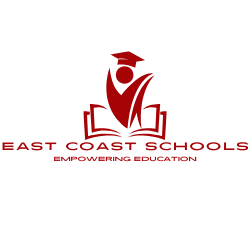As the educational landscape continues to evolve, hybrid learning has emerged as a transformative model, combining the flexibility of online education with the personal interaction of in-person classes. For students attending East Coast colleges, hybrid learning is shaping the future of higher education, offering a balance between traditional classroom experiences and modern technological advances.
In this blog post, we’ll explore the growing role of hybrid learning at East Coast colleges, the benefits it offers, and how it is reshaping the way students approach their academic careers.
What Is Hybrid Learning?
Hybrid learning, also known as blended learning, is an instructional model that combines in-person classroom experiences with online learning components. In this setup, students attend physical classes for part of the course while completing assignments, lectures, and discussions online for the rest. This flexible model allows students to engage with the material in diverse ways, fostering a more personalized and efficient learning experience.
Why Is Hybrid Learning Gaining Popularity at East Coast Colleges?
East Coast colleges have been at the forefront of adopting hybrid learning. As universities like Harvard, Yale, and NYU continue to innovate, the benefits of this model have become clear:
- Flexibility and Convenience
With a hybrid learning model, students have the option to attend class in person or remotely. This flexibility is especially beneficial for those who may have busy schedules, commute long distances, or want to balance work and study. - Enhanced Learning Experience
The combination of face-to-face interaction with professors and peers and online resources creates a dynamic learning environment. Students can dive deeper into topics with recorded lectures, participate in online forums, and engage in more diverse discussions outside of traditional class hours. - Access to Top-Notch Resources
Hybrid learning often comes with access to digital resources such as online libraries, interactive simulations, and global guest speakers. These resources are especially valuable for East Coast students who are looking to leverage the best of both worlds. - Increased Engagement and Retention
Studies show that hybrid learning can increase student engagement and retention. With the ability to revisit recorded lectures and access learning materials anytime, students can learn at their own pace while still benefiting from in-person classes for hands-on experiences.
How Are East Coast Colleges Implementing Hybrid Learning?
Leading East Coast institutions are adopting hybrid learning models in various ways:
- Harvard University: Harvard has integrated hybrid models into many of its graduate programs, especially in areas such as business and law, where online modules complement in-person seminars and workshops. The university also offers online courses that can be combined with on-campus learning for a hybrid experience.
- New York University (NYU): At NYU, hybrid learning has been implemented across a range of disciplines, from arts and sciences to engineering. NYU’s Tandon School of Engineering has pioneered hybrid classrooms that allow students to attend classes either remotely or in-person, depending on their schedules.
- University of Pennsylvania: Penn’s hybrid model is especially popular for its Wharton School of Business, which offers online components for executive education programs, allowing busy professionals to balance work and study while participating in live discussions and lectures.
What Does the Future Hold for Hybrid Learning?
The future of hybrid learning in East Coast colleges is incredibly promising, with innovations that will likely include:
- Advanced Technology Integration
As technology continues to evolve, we can expect more sophisticated tools to enhance hybrid learning. This includes virtual reality (VR) and augmented reality (AR) technologies that can create immersive learning experiences, as well as AI-driven personalized learning to cater to students’ individual needs. - Increased Global Collaboration
Hybrid learning models are perfect for fostering global connections. Students can interact with peers and professors from around the world, creating a truly global classroom experience. This is particularly beneficial for students interested in international business, global studies, and cross-cultural communication. - Expanding Access to Education
Hybrid learning offers increased access to education for students with disabilities, those who live in rural areas, or those with other barriers that prevent regular on-campus attendance. As East Coast schools expand their hybrid offerings, more students will be able to access higher education, regardless of their geographic location. - A New Focus on Student-Centered Learning
Hybrid learning shifts the focus from traditional lectures to a more student-centered approach, where students have more control over their learning process. This personalized model encourages active participation and critical thinking, equipping students for success in the modern workforce.
Conclusion: Is Hybrid Learning Right for You?
Hybrid learning is reshaping the way students engage with their education. East Coast colleges embrace this model to create more flexible, accessible, and engaging learning environments. Whether you are attending a prestigious Ivy League school or a smaller liberal arts college, the future of education is undoubtedly hybrid.
As you consider your academic options, consider whether a hybrid learning experience aligns with your learning style and lifestyle. The flexibility, combined with the innovative use of technology, sets the stage for an exciting and dynamic future in higher education.
Need personalized guidance on finding the right inclusive college? Contact us today to start your journey!
